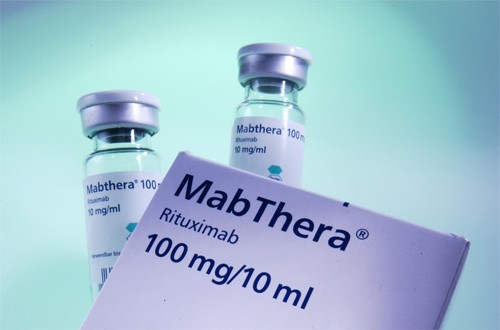
Roche’s ageing blockbuster MabThera has picked up a new approval in life-threatening skin disorder pemphigus vulgaris, becoming the first new treatment for the disease in six decades.
MabThera (rituximab) – an anti-CD20 antibody known as Rituxan in the US – has been cleared by the FDA for moderate to severe forms of the autoimmune disease, which causes painful blistering on the skin and mucous membranes. The approval was based on a phase III trial of the drug as a first-line treatment option alongside short-course corticosteroids.
The results showed that Roche’s drug plus prednisone was significantly more effective than prednisone alone in achieving a clinical remission in PV patients. After two years, 90% of those on the combination were disease-free versus 28% of the steroid-only group. The results were published in The Lancet last year.
Rituximab is the first new therapy for PV in more than 60 years, and the first biologic drug for the disorder, according to Roche. Its importance as a new treatment option is reflected by the FDA’s awarding of priority review, breakthrough therapy and orphan drug status for the drug in this setting.
It’s a small new indication for Roche’s drug – affecting between one and seven people per million in the US and Europe – but an important clinical advance for PV patients “who are currently faced with a treatment regimen that can cause significant, long-term side effects,” according to Victoria Werth, a specialist in autoimmune skin diseases based at the University of Pennsylvania.
PV has a mortality rate between 5% and 10%, mostly due to complications of therapy, which consists of high doses of steroids taken for several weeks followed by a lower dose of steroids in combination with off-label immunosuppressive drugs for many months.
Rituximab already has a long list of approved indications – including autoimmune disease rheumatoid arthritis, granulomatosis with polyangiitis (GPA), and microscopic polyangiitis (MPA) – and despite being on the market for more than 20 years was still the company’s biggest product last year, bringing in around $7.5bn in sales.
Growth has slowed however following the onset of biosimilar competition in Europe, and analysts at JP Morgan recently predicted sales will slide 16% this year as a result.




